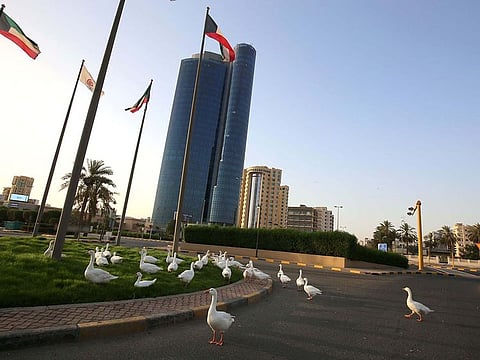One-third of Kuwait’s general reserve fund is gone
1.5b dinars lost in 38 days; oil price drop and COVID-19 have both had negative impact

Also In This Package
Kuwait City: The General Reserve Fund (GRF) has lost 1.5 billion Kuwaiti dinars (Dh17.9 billion) in the past 38 days, Kuwait media reports.
The fund currently has 3 billion Kuwaiti dinars in liquidity, which is a drop from 4.5 billion Kuwaiti dinars back in March.
“Naturally when government expenditure is higher than its revenue they would have to cut into the general reserve,” Tareq Al Saleh, Head of Economic Research at Gulf Bank Kuwait, told Gulf News.
Drop in oil prices and the COVID-19 pandemic have both had a negative effect on the Kuwaiti economy, as governmental spending has increased and the state’s revenue has decreased.
The General Reserve Fund, which is managed by the Kuwait Investment Authority (KIA), is the country’s main fund as it stores the state’s oil revenues and incomes generated from investments.
Based on a Fitch Ratings report, the fund has dropped for the sixth year in a row, mainly due to deficit financing and the repayment of domestic maturities.
“Kuwait doesn’t have a financial problem; it has an economic problem. The government needs to start implementing long term reforms to diversify its revenue, increase governance and create employment opportunities outside the public sector by supporting the private sector,” said Al Saleh.
Reform requirements
“Tapping into the reserve is not ideal. Passing public debt law should be considered while addressing long term reform requirements,” explained Al Saleh.
The public debt bill was presented to parliament back in 2018 and was put forth again in April 2020. The bill will allow the Kuwaiti government to borrow money from abroad, therefore reducing the need to deplete the General Reserve Fund, as well as the Future Generations Fund.
In April, Marzouq Al Ghanem, Speaker of the National Assembly, announced that the 2018 bill is unlikely to pass in parliament and that the government should propose a new bill taking into consideration the effect of the pandemic on the local economy.
Low oil prices and the pandemic could lead to a 11 per cent deficit by the end of the year, the International Monetary Fund estimates.








